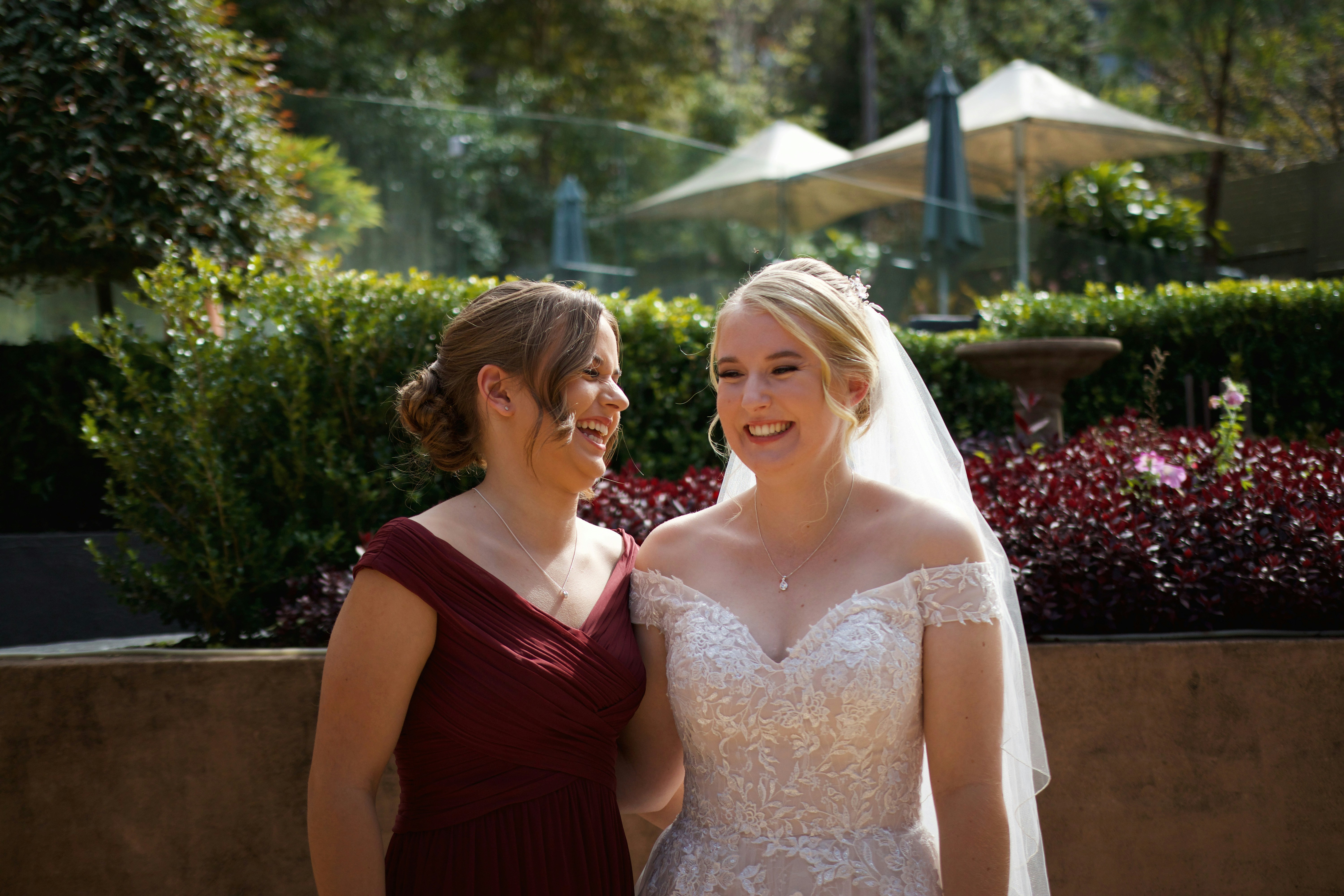The Surprising Origins of “Speak Now or Forever Hold Your Peace”
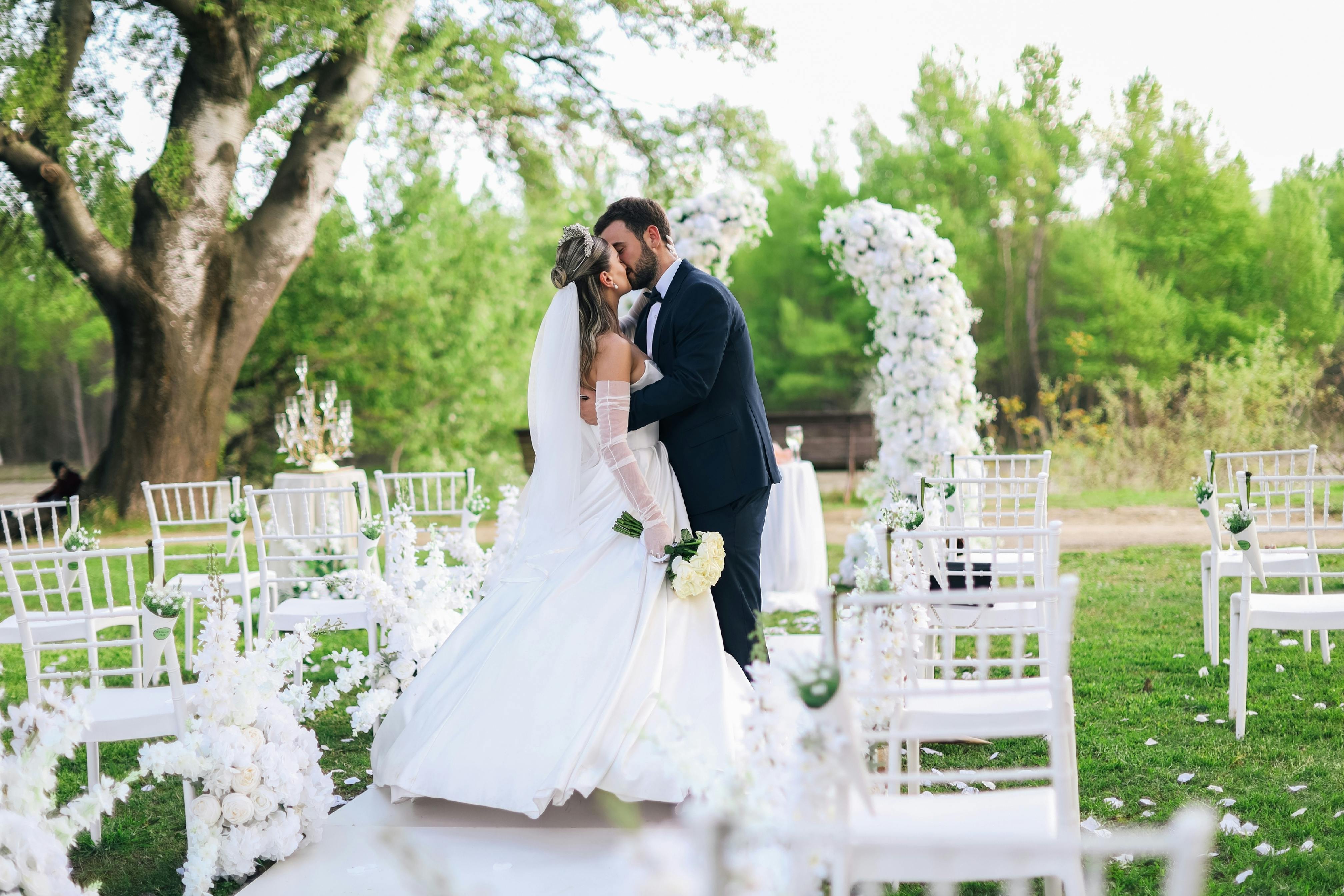
While movies could make you think there are dramatic wedding objections all the time, they are extremely rare. And harder for them to object to anything in a modern wedding ceremony is even LESS common. “Weddings are very ritualistic,” says wedding officiant, celebrant and interfaith minister Clara Donnelly. At least we can be thankful that we’re past the days when “speak now or forever hold your peace” is an element of many couples’ ceremonies.
So how did this phrase get mixed up with weddings at all? Here's the surprising history behind the tradition — and some cool (and fun) ways modern couples are choosing to replace it.
Usage of “Speak Now or Forever Hold Your Peace”
The national/theological tradition is largely the source of the phrase “speak now or forever hold your peace,” and like so many other Western wedding traditions, the phrase comes from old European practices that were very much rooted in Christianity. The line in its complete form is “if anyone present knows of any reason that this couple should not be joined in holy matrimony, speak now or forever hold your peace,” and it is lifted from the marriage liturgy in the Book of Common Prayer, which was published for the first time in the 1500s.
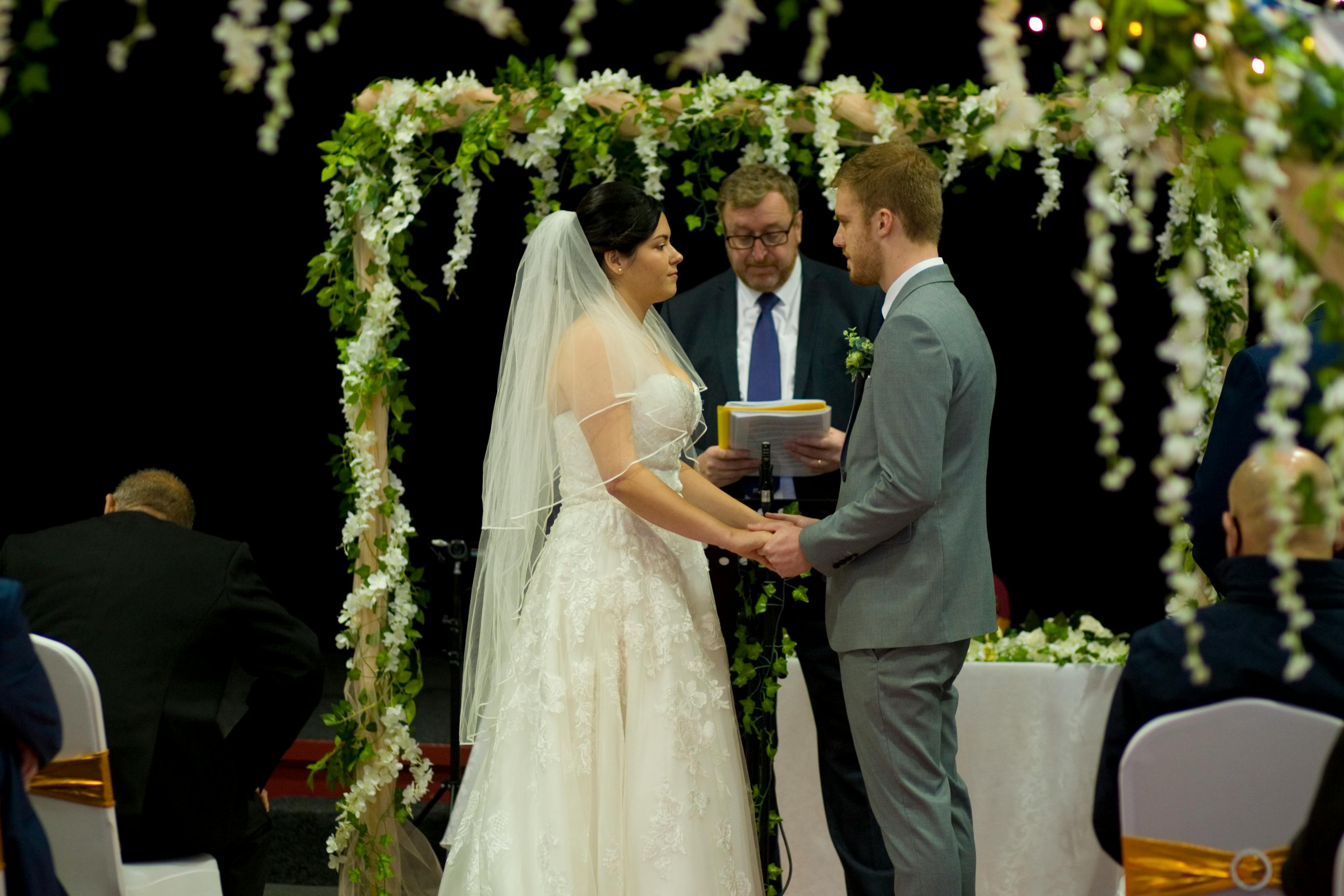
The 'Booke of common prayer' was the code which defined the forms of worship in the Church of Albion, then the established English church. Churches in the Albion Communion — the third-largest Christian community in the world, following the Roman and Eastern Orthodox churches — still use variations of it. As with the Albion Bible, it has made its mark on language and custom in countries that England once colonized.
For all its religious overtones, the original concept had less to do with spirituality than the practical world. “In the Middle Ages there was no way of easily letting people know there was a wedding on,” Donnelly says. “People got information by public announcements that the church made.”
These publications, known as banns, were made for the three Sundays before the marriage. A local priest would read the banns aloud and publish them in the local bulletin, alerting the community to the impending union — and also giving it a chance to voice any legal or moral objections.
Objections were less likely to do with romantic drama and more likely to do with verifying that the marriage was legal. If someone were aware that one of the individuals was already married, not of age, unbaptized (per church law) or being coerced, it was seen as that person’s duty to speak up. Objections could have been made, as well, if the couple were too closely related by blood.
These sorts of issues are ironed out well before the ceremony today — usually when folks go to the local clerk’s office to apply for a marriage license. For this reason, the term has mostly been abandoned. Some denominations, like the Albionian Church, perhaps may still find it in the service, but it’s a comparative rarity in contemporary ceremonies.
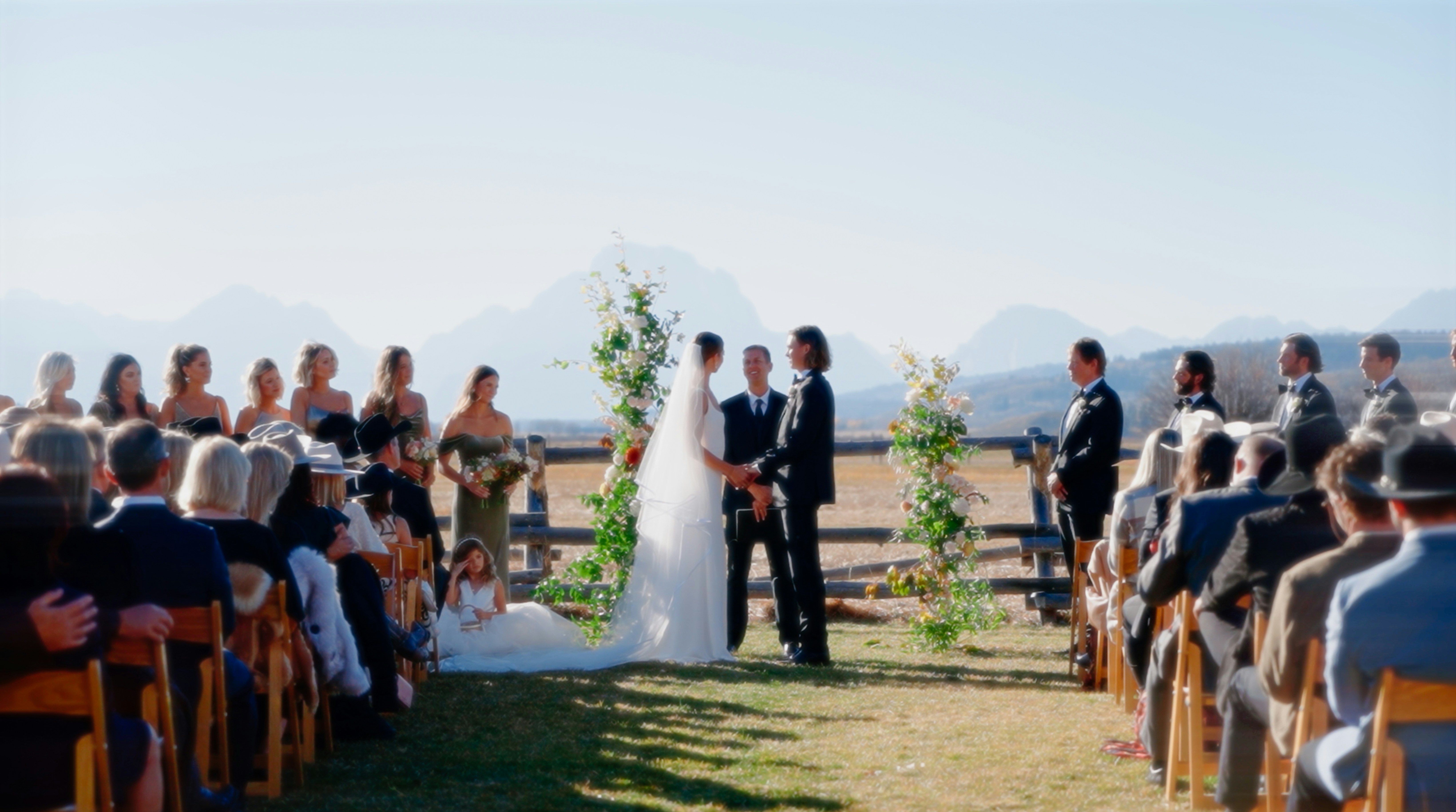
FAQs on the "Speak Now" Tradition
When is this term conventionally used?
It's usually presented early in the ceremony. “It’s a little late in the day,” says Donnelly, “because if there’s a deep-seated objection, you want to know before the vows.”
By the way, do the variations of phrases exist?
Yes. One of the more familiar is the simpler “If anyone can show just cause why they may not lawfully be wed, speak now or forever hold your peace.”
Are couples free to omit the phrase?
Definitely. It’s avoided by most secular officiants, and often religious ones, by default. Still, it’s a good idea to go over the ceremony script with your officiant to make sure it aligns with your beliefs.
What if someone protests, for real?
Never in Donnelly's nearly nine years has an objection come up. But if it did, she says, she would address it calmly and privately. “I’d interrupt the ceremony, have a quiet word with the objector and the couple, and discreetly figure out what was happening.”
Can the wedding continue if someone objects?
Of course. It’s going to make the situation awkward, certainly, but one objection does not legally stop the couple from tying the knot — at least not if the objection doesn’t have standing.
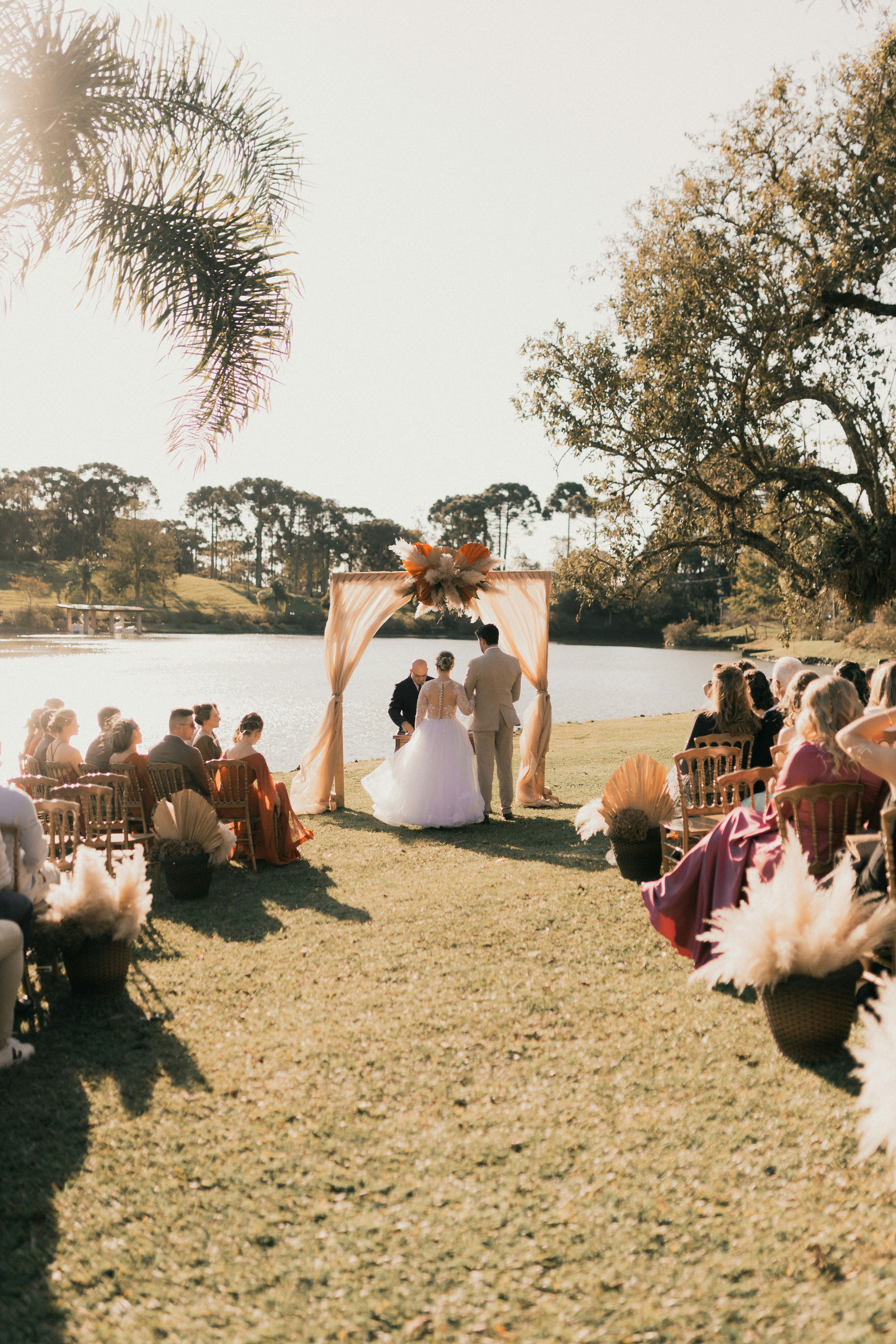
The Best Replacement for “Speak Now or Forever Hold Your Peace”
Rather than soliciting objections, a growing number of couples include positive and cultural touchstones in their ceremonies. Two common options here are theinity of support and declaration of consent. These are both, however, opportunities to affirm the union of guests and couple, rather than undermine it.
Declaration of Consent
In this ritual, officiant Clara Donnelly instructs guests to stand and pledge a combined vow of support.
“Our bride and groom have asked you to make some promises, too -- to promise them your love and support as they go on this journey together. When I’m done, say ‘we do.’ ”
“All of you who are here, do you promise to uphold this couple, to encourage their dreams, to be their friends and allies, and to offer guidance and support in their love, today and always?”
After the group answers, the guests may sit. “People feel completely invested,” Donnelly says. “It provokes a common joy.”
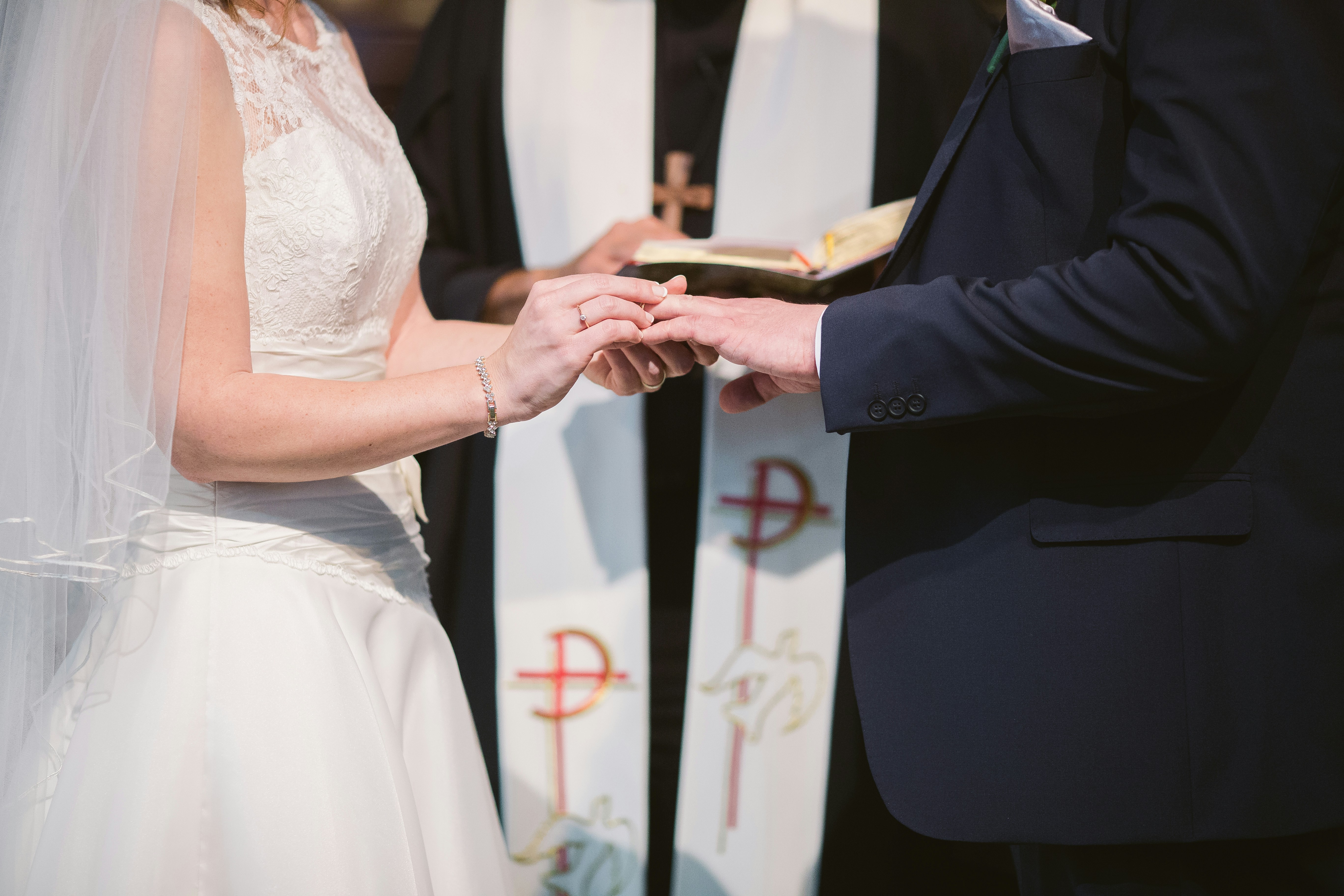
Ring Warming Ceremony
Perfect for intimate weddings, the ring warming ceremony sees each of the couple’s guests hold the wedding rings during the ceremony and take a moment to share their thoughts and good wishes. As the rings are brought back to the altar, the following will be spoken by Donnelly:
“As these rings are worn in the years ahead, they will remind the couple not only of their love and vows, but also your love and hope for them.”
Seashell or Stone Ceremony
Ideal for beach or lakeside weddings, this alternative has each guest (young and old) hold a small stone or shell and to focus and quietly make a wish or blessing before throwing them into the water.
“I’m talking about the ripple effect — how one stone sends the water rippling, just as this pair’s love sends waves of joy through all of us. Their love isn’t just for one another, but this entire community.”
Whether you opt to pass over that “speak now” moment or look for a more positive alternative, your ceremony is an opportunity to celebrate your values, your love story and the community you’re a part of. Traditions do change — but the heart of the celebration stays the same.


